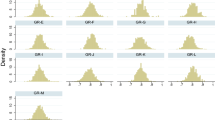Abstract
Decentralization in the education system has become a trend in many developing countries. However, it is not a solution to the many problems in education faced by these countries. One of the adverse effects of decentralization is disparity between regions or schools in terms of educational achievement. This paper offers a justification for such a view by studying the case of the Indonesian education system. Data was collected from about 5,000 Sekolah Lanjutan Tingkat Pertama (SLTP) schools (junior secondary schools). The method of covariance structure analysis was used to identify the influences and effects of factors related to educational environment upon educational outcome, and to make a comparison between before and after the introduction of decentralization in Indonesia. The main finding of this research is that increase in the school budget improves the quality of the educational environment and leads to higher test scores and lower dropout rates. Such positive results, however, turned out to be less significant, and the relationship between factors became weaker, during the period after decentralization had started. This was particularly the case for the group of schools whose budget level was relatively small. Therefore, there is a need to consider measures aimed at correcting the disparity between schools as well as regions.
Similar content being viewed by others
References
Bjork C. (2003) Local responses to decentralization policy in Indonesia. Comparative Education Review 47(2): 184–216
Bowls S., Gintis H. (1976) Schooling in capitalist America. Basic Books, New York
Case A., Deaton A. (1999) School input and educational outcomes in South Africa. Quarterly Journal of Economics 114(3): 1047–1084
Cheng Y. C. (2007) Future developments of educational research in the Asia-Pacific region: Paradigm shifts, reforms, and practice. Educational Research for Policy and Practice 6: 71–85
Chou C., Bentler P. M. (1995) Estimates and tests in structural equation modeling. In: Hoyle R. H. (eds) Structural equation modeling: Concepts, issues, and applications. Sage, Thousand Oaks
Coleman J. S. (1966) Equality of educational opportunity. U.S. Government Printing Office, Washington, DC
Department Pendidkan National. (2003). Indonesia educational statistics in brief. Jakarta: Department Pendidkan National.
Edmonds R. R. (1979) Effective school for the urban poor. Educational Leadership 37(1): 15–27
Fuller B. (1987) What school factors raise achievement in the third world?. Review of Educational Research 57(3): 255–292
Japan International Cooperation Agency: (2005) The study on regional educational development and improvement program in the Republic of Indonesia. IDCJ PADECO Co, Ltd, Tokyo
Jimenez E., Paqueo V. (1996) Do local contributions affect the efficiency of public primary school?. Economics of Education Review 15(4): 377–386
Karino Y. (1997) Graphical multivariable analysis by AMOS, EQS, LISREL. Gendai Sugaku Sha, Tokyo
Kristiansen S., Kristiansen S. (2006) Decentralizing education in Indonesia. International Journal of Educational Development 26: 513–531
Matsui K. (2003) Decentralization in Indonesia. Institute of Developing Economies, Tokyo
Ministry of National Education: (2003) Indonesia education statistic in brief. Ministry of National Education, Jakarta
Momose I. (2001) Educational system and situation in Indonesia. Pustakaroka, Tokyo
Nakaya A. (2001) Decentralization of school education in Indonesia (2). Bulletin of Pedagogic Study 47(1): 384–389
Nakaya A. (2005) Study of self-supportive school administration in Indonesia. Journal of International Cooperation in Education 8(2): 51–62
Nakaya A., Suwa H. (2001) Educational administration in Indonesia—preliminary study on decentralization policy. The Bulletin of Tokushima Humanities and Science University 61: 123–129
Ng P. T. (2007) Quality assurance in the Singapore education system in an era of diversity and innovation. Educational Research for Policy and Practice 6(3): 235–247
Ng P. T. (2008) Educational reform in Singapore: From quantity to quality. Educational Research for Policy and Practice 7(1): 5–15
Pimpa N. (2005) Teacher performance appraisal in Thailand: Poison or panacea?. Educational Research for Policy and Practice 4: 115–127
Psacharopoulos G., Woodhall M. (1985) Education for development. World Bank, Washington, DC
Tabei A. (2001) SPSS perfect application—questionnaire processing by covariance structural analysis. Tokyo Tosho, Tokyo
Tanaka M. et al (1998) Causal model analysis on the personal disposition and the adaptation toward the academic specialty. Japanese Journal of Educational Psychology 46: 262–270
Toi A., Muta H. (2003) Impact evaluation of Japan’s junior secondary school construction in Indonesia. Report of National Conference of Japan Evaluation Society 3: 37–41
Toyoda H. (1998) Covariance structural analysis. Asakura Shoseki, Tokyo
Treisman D. (2000) The causes of corruption: A cross-national study. Journal of Public Economics 76(3): 399–457
Wolf J. M., Bokhorst-Heng W. (2008) Polices of promise and practices of limit: Singapore’s literacy education policy landscape and its impact on one school program. Educational Research for Policy and Practice 7: 151–164
Yamamoto K., Onodera T. (1999) Covariance structural analysis by AMOS (2nd ed.). Nakanishiya, Tokyo
Author information
Authors and Affiliations
Corresponding author
Rights and permissions
About this article
Cite this article
Toi, A. An empirical study of the effects of decentralization in Indonesian junior secondary education. Educ Res Policy Prac 9, 107–125 (2010). https://doi.org/10.1007/s10671-010-9081-6
Received:
Accepted:
Published:
Issue Date:
DOI: https://doi.org/10.1007/s10671-010-9081-6




